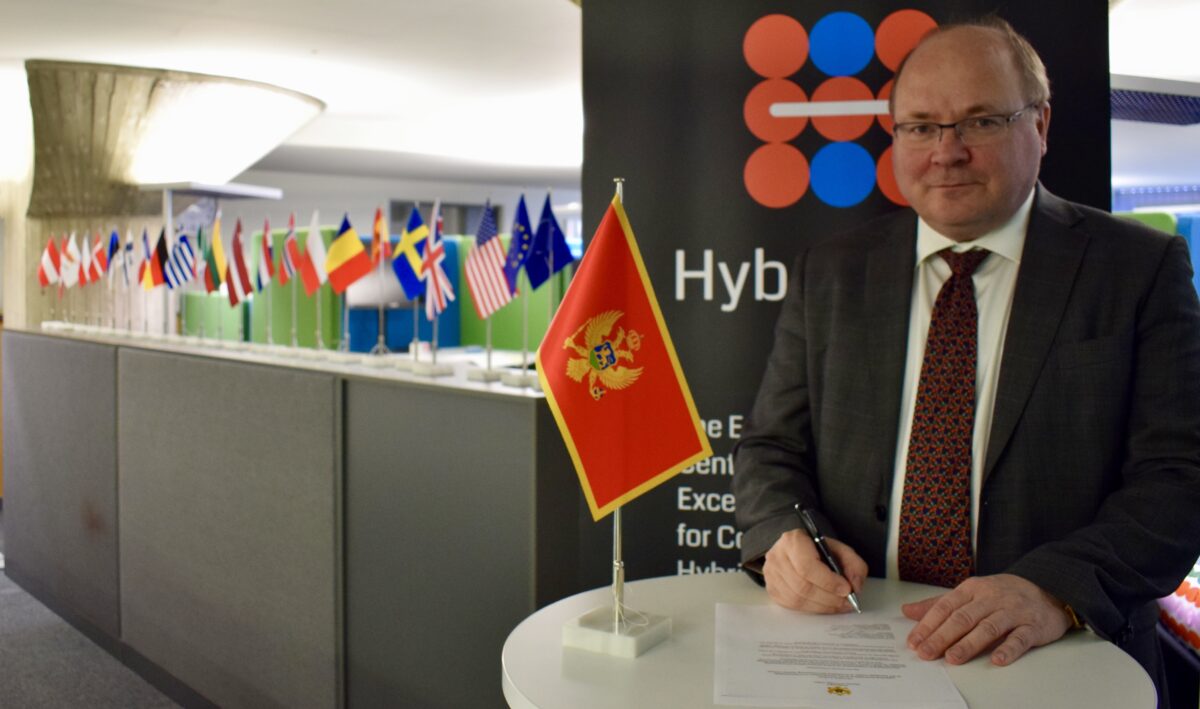By exchanging letters of notification between the Ministry of Foreign Affairs and the European Centre of Excellence for Countering Hybrid Threats, Montenegro officially became a member of the Centre on 17 May, after the Steering Board of Hybrid CoE unanimously adopted the decision on the country’s membership on 14 May.
Montenegro’s Foreign Minister, Srdjan Darmanovic, stated that: “Joining the Centre is a further direct benefit of NATO membership, which will enable the exchange of experiences and good practices with member states of both NATO and the EU, as well as contribute to Montenegro’s efforts in building and strengthening national capacities in countering hybrid threats.”
“Montenegro’s membership is a welcome step in the Centre’s enlargement to South-Eastern Europe. This region is very important from the hybrid point of view for European security,” said Matti Saarelainen, Director of Hybrid CoE.
Hybrid CoE promotes the countering of hybrid threats at a strategic level through research and training with the aim of creating networks of experts for overall security. The Centre currently has 22 member states: Austria, Canada, Cyprus, the Czech Republic, Denmark, Estonia, Finland, France, Italy, Germany, Greece, Latvia, Lithuania, Montenegro, the Netherlands, Norway, Poland, Romania, Spain, Sweden, Great Britain, and the USA. Membership is open to all countries of the EU and NATO, and the two organisations also participate in the Centre’s activities.



